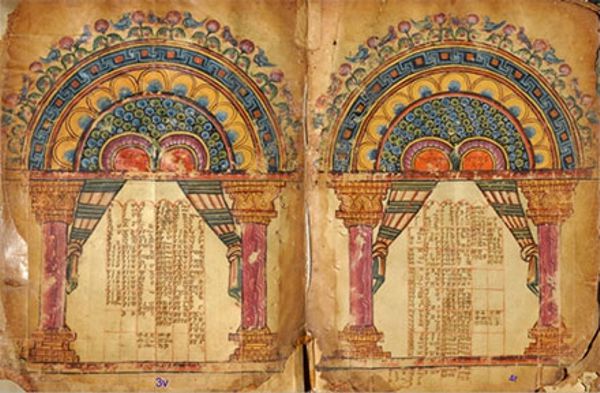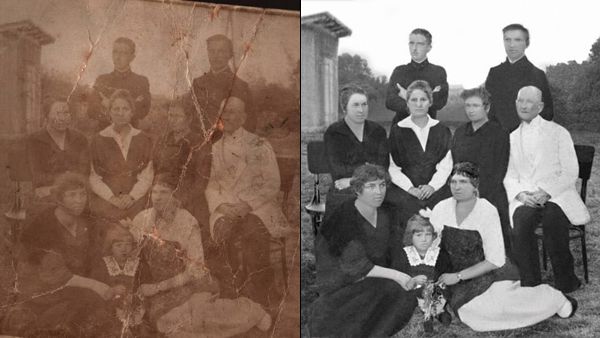What Will Become of All This?
What Of the House?
Occasionally I wonder what will become of my efforts here after I'm gone, which now looks to be within the next year or two. The house? If cared for properly, it could last many decades, perhaps even centuries.
What Of the Adventure?
But what of my experience building it? All of this information is currently stored as digital data, which (unfortunately) is one of the most fragile forms of documentation known to man. Nearly all of my stuff is presently stored as microscopic magnetic impressions embedded in the surface of several small metal discs (hard disc drives). These magnetic impressions diminish over time, and unless they're "refreshed" every so often, all of the information will gradually fade away into nothing. This is why old videotapes become unplayable after a while: the storage principle is the same, although far more tenuous.
Then there are all of those billions of photos and videos (and messages and music, etc.) people keep on their smartphones. This is an even riskier type of storage than hard drives; once that phone dies, the data usually dies with it. A good friend of mine lost hundreds of photos from his wedding, as well as the birth of his son and who knows what else, because they remained on a phone that got accidentally dunked in water. It was hard to feel sorry for him, since it would have been trivial to transfer all of those cherished memories onto a more robust storage medium.
Sadly, the Internet is of no real help, despite various "cloud" services and other data repositories: countless photo albums have already gone poof because some web hosts have gone poof. Not to mention that link rot is as bad if not worse than data rot in terms of rendering information inaccessible. Nothing on the Internet is forever. Nothing, not even the Internet itself.
|
Still, let's say my data is properly archived (by whatever means). The problem then becomes retrieving it. This requires both hardware to read the data, and software to decode the data and reconstruct it as recognizable information. Both of these vital components—hardware and software—are highly susceptible to obsolescence, which means my story may be inaccessible in just a few decades. As it is, there are already countless storage methods that are no longer viable, and while newer, more robust storage methods are constantly being developed, this assumes the hardware and software needed to retrieve the information remain available in the far flung future. Well, based on available evidence, the likelihood of that is vanishingly slim.

Meanwhile, books as old as 1,800 years or more are still intact and readable, and with care will likely remain so for many centuries to come, whereas the life expectancy of a typical recordable CD or DVD is no more than 1/100th of that. And while old photos may fade and become damaged over time, they can be restored, often with surprising success, whereas once the data of a digital image is corrupted, it's lost forever.

Some years back, one of the largest data warehouses on the planet reported that digital information is being lost faster than it can be preserved. Not to mention that new data is being accumulated at a geometrically increasing rate, and who will decide what's worth keeping, where on Earth will we put it all, how will it be stored, and (most challenging of all) by what means will we find what we seek? Thus, in the unlikely event it's archived, my home-building saga will almost certainly be lost amidst so much other noise.
This is not to say my story is even worth preserving in the first place; it is, instead, a warning for digital-philes, who seem to think 1s and 0s are eternal: your data is by far the most at-risk of any information. (Don't take my word for it; do the research—I have.) Want to preserve something for future generations? Carve it in stone. Seriously.
What Of the Adventurer?
Although I've left an infinitesimally small mark on the history of humanity (I've been mentioned in a few books, for what it's worth), in the grand scheme of things I'm truly a nobody; just another blob of protoplasm among countless others. My passing will give rise to mourning among a small group of close friends, and perhaps a kind thought or two from a slightly larger group of "e-friends" who have followed my saga online.
But I'm not destined to be known beyond this, I know. And it doesn't bother me; I've never been one to seek notoriety. Because, what of it? Humans are but exceedingly brief occupants of a Universe that will continue to exist long after our race extinguishes itself, with nothing to mark our passing. The Universe is unaware of us, for if it were otherwise, we'd know it by now. I think it's enough that some of us reach self-awareness and declare—even if to no one else—"I am."
